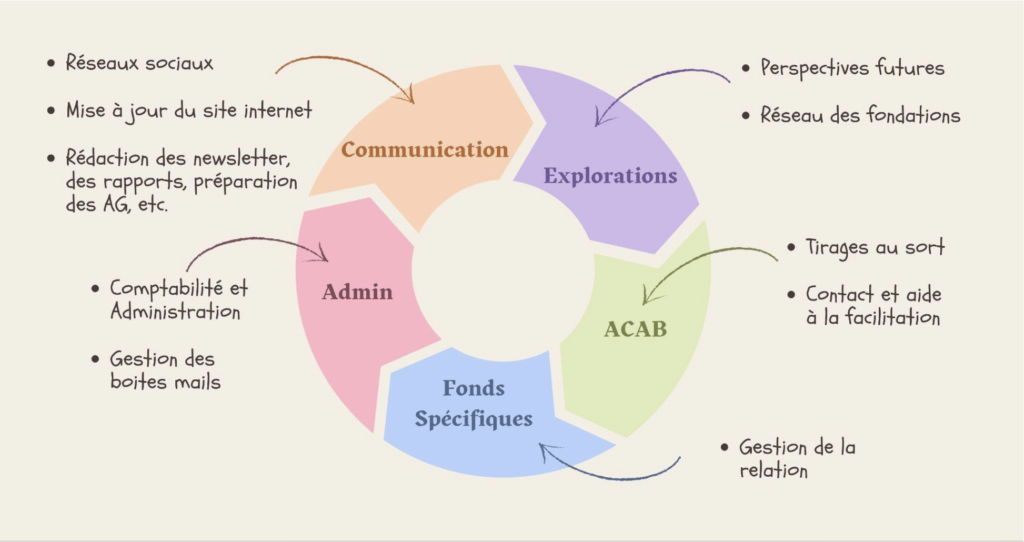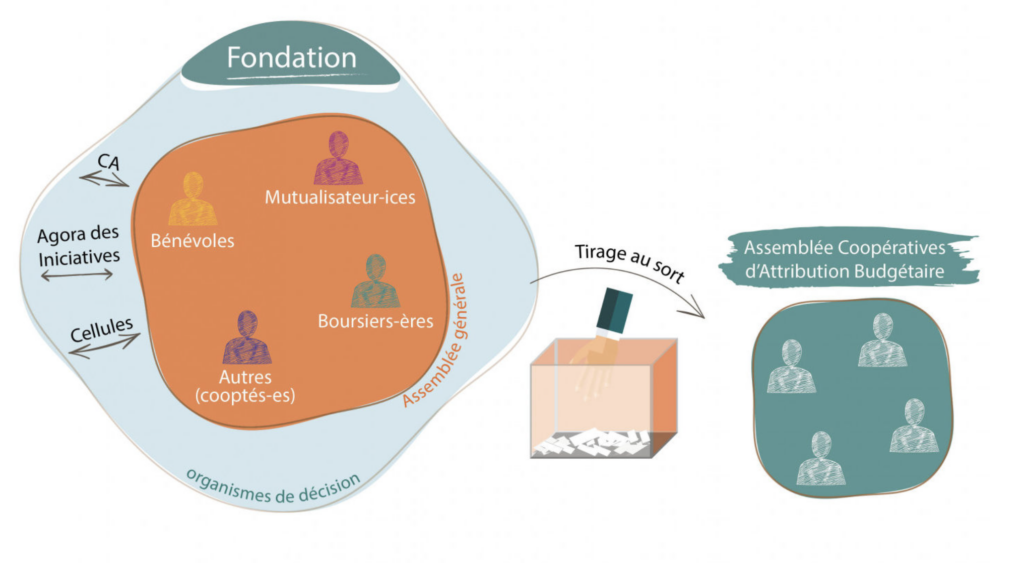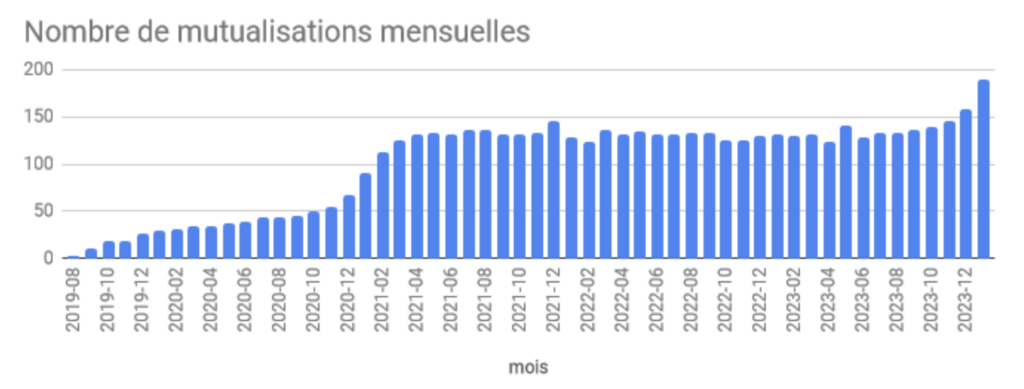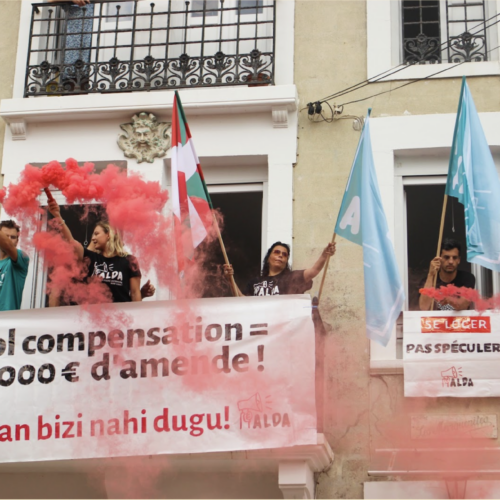In 2018, Brussels, faced with a familiar and recurrent issue to so many collectives worldwide, a network of activists sat down for a whole year to imagine a fully autonomous, bottom-up, grassroots driven, horizontal funding mechanism. The idea was to be able to collect funds on a rolling basis, easily distributing them via small grants to local collectives that work for system change, and do so in a decentralized and empowering manner. In 2019, they finally established a foundation and named it after a French Anarchist Bandit-Patron: The Fondation Marius Jacob (FMJ).

The FMJ defined itself as a “collective, emancipatory and self-organized financial tool to support resistances, alternatives, and struggles.” It funds feminist, anti-racist, ecological and social activists and collectives that fight against all forms of violence, exploitation or domination, push for transformative social change, promote collective emancipation, or experiment with new ways of doing things. And it tends to support “counter-current initiatives”, bold projects with multiplier effects or that create or facilitate access to tools, and to help a diversity of struggles that do not, or rarely, receive support.
The FMJ relies solely on local, community-based, fundraising mechanisms. This includes punctual donations, both in cash or in kind, and mutualizations: recurrent donations of 1 or 2% of monthly earnings to the Foundation. As the community grows, so does the pot that supports it.
This bottom-up fundraising matters. It empowers communities from within and promotes network weaving and resource sharing. But the main innovations come at grant allocation: at the FMJ, not only does everyone share a common pot, the proceedings of that pot are decided collectively, through innovative democratic approaches such as random-selection of jury members, rotational seats, decentralization of decision-making powers, and even self-assessment of donor privileges for all engaged – for a truly equitable power distribution.
Besides the volunteer-based working groups leading the various operational tasks, the structure is divided in 3 “power pillars”, separated for equity and decentralization: the Jury, responsible for the grantmaking; the administrative staff, which validates funding requests, organizes the G.A., etc.; and the General Assembly, which gathers all the members of the Foundation, where all strategic decisions are
made, and where the two former pillars can be questioned/challenged. Besides this, the (powerless) FMJ Board merely has an “accounts validation” role.

Basically, grantmaking at the FMJ works like this: All year long, the FMJ acts like a fund deposit, where donations or mutualizations are stored. Once a certain threshold of funds is attained (presently set at €6000), a Jury Assembly (Assemblée Coopérative d’Attribution des Bourses, or ACAB) of 6 to 9 people is convened. It does so by randomly selecting people from previous grantees and everyone that donated: whatever you received or donated, you have the same chances of being selected. Two facilitators are also randomly selected, and accompany the selected jury as it assesses the funding requests that have been submitted by the community. The jury then distributes the money by the projects, is automatically dissolved after that, and the process starts over. Both facilitators and members of jury can only take part in a maximum of 3 assemblies.

This has many advantages: It reduces the administrative burden to a minimum (one part time is enough to run the accounting and admin parts of the foundation); it also decentralizes power as no one, nor one permanent body, has control over funding allocations. Importantly, it allows for the full potential of grass-roots permissionless innovation, letting the community self-assess and make fully autonomous choices on the best paths of action in the different fronts it engages in; it is faster to decide and grant, distributing small amounts in a quick manner, tendering to immediate or strategic needs, as identified.
All this turns the FMJ into much more than a mere funding mechanism. It incorporates a full-on socio-economic democratic practice and experimentation, backing community-led decision making with the resources to turn them into reality. Decentralized and horizontal resource management, network weaving, and civic education – all within an organic self-funding mechanism. A truly grassroots democratic renewal, where collaborative and deliberative practices pave the way for community-centered solutions, for citizen empowerment, and for effective collective decision-making.
The proceedings in Brussels so far are incredible, with over 140 projects supported, and €100,000 distributed in 4 years, in full autonomy, from a local self-managed organization which started with 0€.

The FMJ model is scalable from small towns to entire nations, and has the power of transforming democratic ideals into everyday practices, empowering communities to make collective decisions and turn their visions into reality. For this, the FMJ supports communities that wish to experiment with this funding model, with free knowledge transfers and wider support.
Talk to us.
We believe revolutions can only take place when they happen everywhere, in distributed and rhizomatic expansion, adapted to local realities, and directly from the bases. How could your community be part of it?
Reach out and touch funding faith: contact@fondationmariusjacob.org



